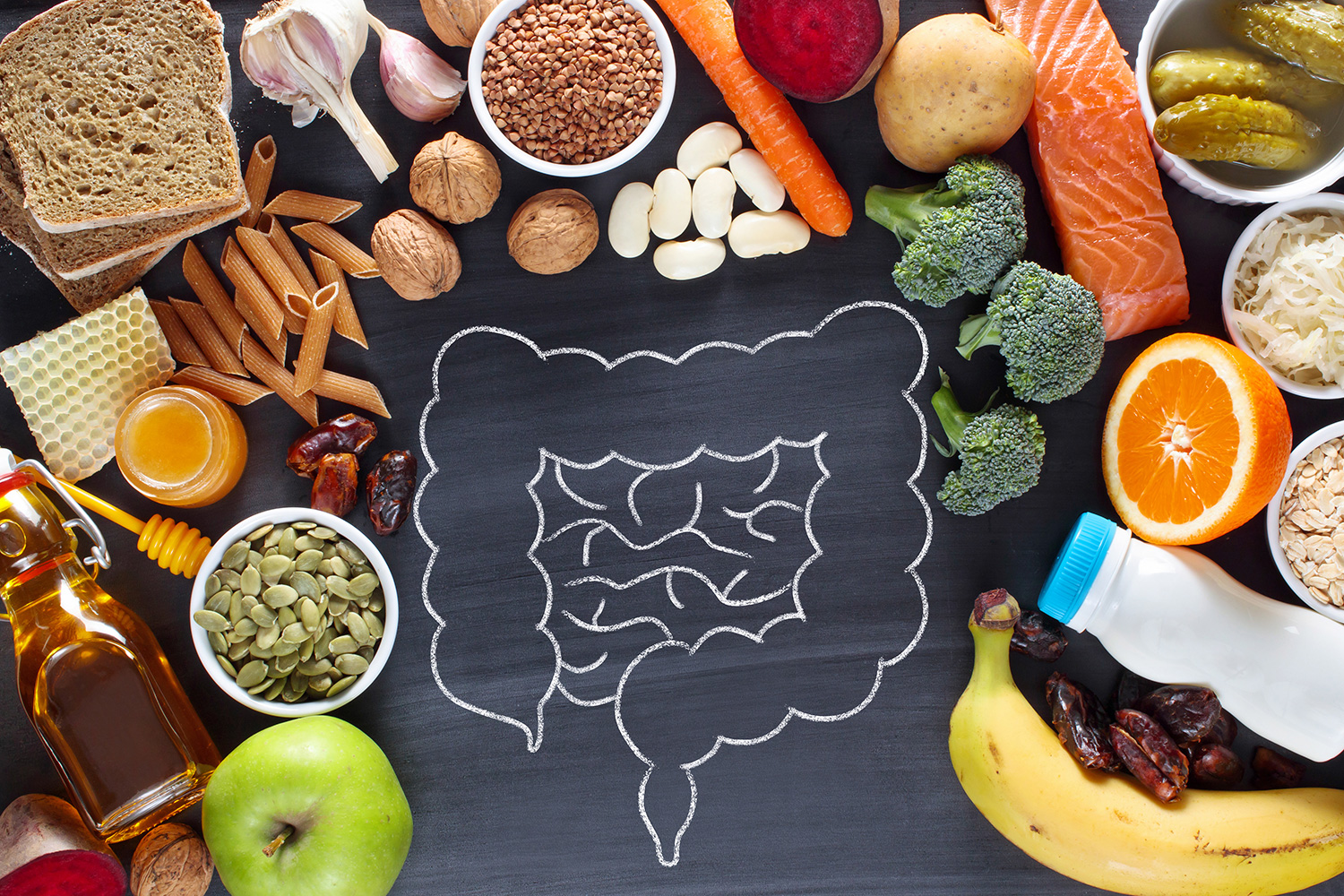You Are What You Eat: Gut Health and the Brain

How many times have you heard the old adage “You are what you eat”? It turns out there is more to it than we thought. Scientists have shown a connection between gut health and the brain. Understanding this can make you feel better and maybe even live longer.
How Are the Gut and the Brain Connected?
Doctors and researchers at Johns Hopkins Center for Neurogastroenterology point out that we are already aware of this link. We have all had gut-wrenching moments or felt butterflies in our stomachs when we were nervous. That is no coincidence, due to what scientists call the “brain” in our gut—the enteric nervous system (ENS). The ENS is “two thin layers of more than 100 million nerve cells lining your gastrointestinal tract from esophagus to rectum.”
That means the “brain” in your gut relays messages to the brain in your head, creating a very real connection between gut health and the brain. This explains why people with irritable bowel syndrome, stomach upset and other gastrointestinal issues frequently feel stressed, anxious and depressed. For years, scientists assumed that anxiety and stress caused stomach issues. Now, it appears it could be the other way around.
Gut Health and Aging
The key to good gut health and aging is your gut microbiome, which consists of all the bacterial components inside your digestive tract. A 2021 study found that older adults with a mix of gut microbes live longer and are healthier overall. There is growing evidence that good gut health can lead to better cognitive health in older adults and may reduce the risk of Alzheimer’s.
Improving Your Gut Health
So how can you encourage a diverse microbiome? Studies show there are several essentials to improving your gut health:
- 1. Eat well. We explore specific types of food to include in your diet below, but in general, eat healthy and avoid junk food.
- 2. Drink water. Most of us are aware of the need to stay hydrated (six to eight glasses of water a day is recommended for adults). But did you also know that water aids digestion? Digesting your food properly is almost as important as what you eat.
- 3. Relax after a meal. This facilitates the production of gastric juices, which help your body absorb food and the nutrients it needs.
- 4. Exercise. It is critical to stay active as we age for a variety of reasons, including the health of our gut. Research shows that exercise encourages more diverse microflora as well as gut bacteria that can help fend off gastrointestinal disorders and colon cancer. Exercise does not have to be strenuous—a brisk walk along a scenic trail is ideal.
Eating for Good Gut Health
Salty, sugary and processed food can cause gut damage as we age. Instead, promote good gut health by opting for fruits, vegetables, seeds, beans, and nuts. It is also better to eat fresh foods and avoid those that are pre-packaged. That apple a day really might keep the doctor away!
At Riverwalk Village at The House of the Good Shepherd, we know how important it is for you to live your best life. When you sit down for a meal at Schenk Lodge, you will enjoy nutritious dishes created by our chef using the freshest local ingredients to encourage wellness. The peaceful atmosphere with views of the river and woods also promotes great digestion as you relax with friends.
From farm-to-table dining to lecture series and fitness facilities, discover all the ways you can maintain good gut and brain health for a more joyful life at Riverwalk Village. Contact us today for a tour of our beautiful campus.



